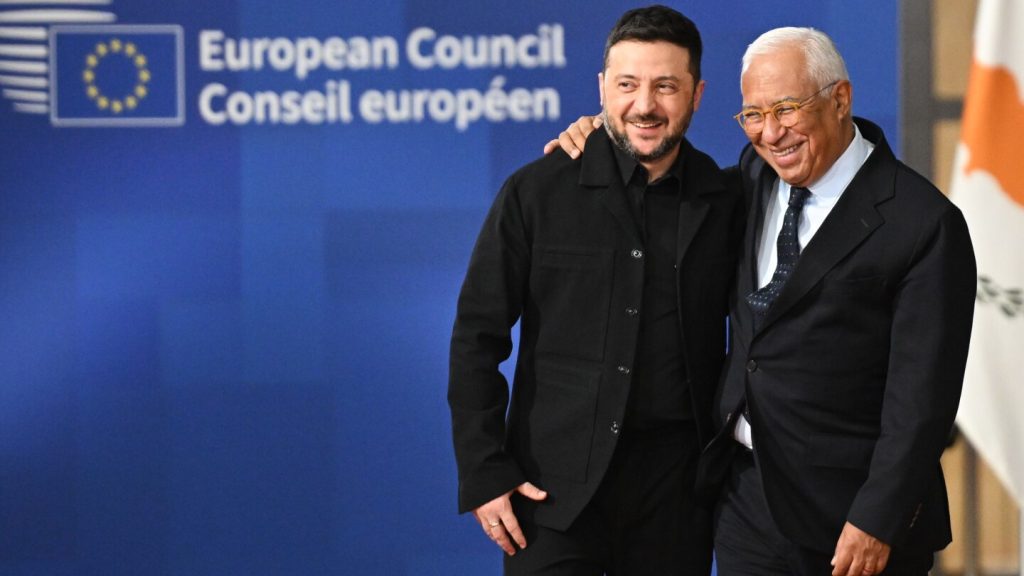BRUSSELS (AP) — On Thursday, the European Union imposed additional economic sanctions on Russia, following newly announced punitive measures from U.S. President Donald Trump targeting the Russian oil sector. Russian officials and state media dismissed these Western actions, claiming they will have minimal impact.
The goal of these sanctions is to undermine the revenue and resources fueling Moscow’s invasion of Ukraine and to pressure Russian President Vladimir Putin into negotiations to end the conflict.
This development is seen as a victory for Ukrainian President Volodymyr Zelenskyy, who has consistently advocated for stronger international actions against Russia in response to its aggression. “We have awaited this. God bless, it will work. This is crucial,” Zelenskyy expressed in Brussels during the announcement of the sanctions by EU summit participants.
Despite U.S.-led peace efforts in recent months, there are no signs of resolution after nearly four years of conflict, causing increasing alarm among European leaders about Russia’s ongoing threat.
Ukrainian forces have effectively stalled the larger Russian military in a prolonged war of attrition along a 1,000-kilometer front line, while Russian attacks daily target Ukraine’s power infrastructure, amidst winter preparations. Meanwhile, Ukrainian forces are targeting Russian oil refineries and manufacturing sites.
Targeted Sanctions
Energy revenue remains the cornerstone of Russia’s economy, enabling Putin to finance military operations without exacerbating inflation or causing a currency collapse. The EU’s latest sanctions primarily target Russian oil and gas, banning imports of Russian liquefied natural gas and imposing port restrictions on over 100 new ships, increasing the total banned vessels to 557.
These measures also restrict transactions involving a cryptocurrency increasingly utilized by Russia to bypass sanctions; they prohibit operations involving Russian payment systems within the EU and limit access to AI and high-performance computing services for Russian entities. Additionally, the export ban has been expanded to include essential electronic components, chemicals, and metals for military production.
Trump-Putin Dynamics
The U.S. sanctions on Russian oil companies Rosneft and Lukoil followed Trump stating that his plans for a meeting with Putin were postponed as he didn’t want it to be unproductive. This marks another chapter in Trump’s fluctuating approach to ending the conflict, as Putin remains firm in his demands.
However, the U.S. sanctions won’t come into effect until late November, potentially giving Putin a chance to reconsider. Chris Weafer, CEO of the Macro-Advisory Ltd. consultancy, mentioned that this period could prompt Russia to engage more seriously, allowing for the possibility of suspending the sanctions.



